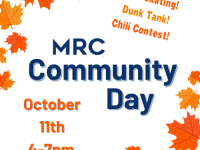Soft Power
Most of us who have engaged in foreign relations activities over the past several decades focus on the “hard power” aspects of international affairs. Hard power includes the military – from weapons procurement or use to arms control agreements; international economics – from international trade to sanctions and tariffs; and diplomacy in pursuit of specific U.S. policy goals.
The projection of U.S. hard power, which is so much in evidence today, involves the explicit or implicit threat to another county that it needs to do as we want or we will punish it. Using hard power in this way may serve a nation in the short term, but only at the cost of losing long-term respect, healthy alliances, and trust.
Fortunately, there is a second aspect of foreign relations that also has been around since the dawn of civilization.
In the 1990s Harvard Professor Joseph Nye drew attention to this ability to influence others without coercion. He coined the term “soft power” to describe it.
Soft power results from the attractiveness of a country’s culture, ideals, and manner in which it conducts itself. These virtues can be spread by a government or, more often, by non-governmental organizations and individuals. Our universities, for example, have a major influence on how others perceive the United States, as do international programs in the arts, humanities, music, and sports. Firms doing business abroad also inform others about US culture. All are examples of soft power at work.
The U.S. and other countries use soft power to build positive influence through international relief efforts, health cooperation, and educational opportunities. The U.S. Agency for International Development, which was eliminated in the first months of the current Administration, is an excellent example of an organization that was set up to be a U.S. presence with long-term impact on less developed countries and to be independent of the short-term policies and goals of any particular administration. In fact, by its very nature the effects of soft power are always long term.
It is important to all of us that other peoples of the world have a positive view of our people, culture, and form of government.
In these times when the U.S. Government is focused almost exclusively on employing our hard power, it is particularly important to think and act on the longer-term soft power elements of foreign policy.
We each should: Learn more about the elements of soft power and how they are conducted; get involved in organizations that promote American culture abroad; seek out opportunities to learn more about the cultures of other regions of the world; and, most importantly, take every opportunity to be goodwill ambassadors for all that is positive about the U.S.
We need to put more emphasis on the “long-game,” soft power-side of international relations. We need this soft power to keep the U.S. a respected player in world affairs.
George Look is President of, and Tom DeMarco a Director of, The Mid-Coast Forum on Foreign Relations.


























